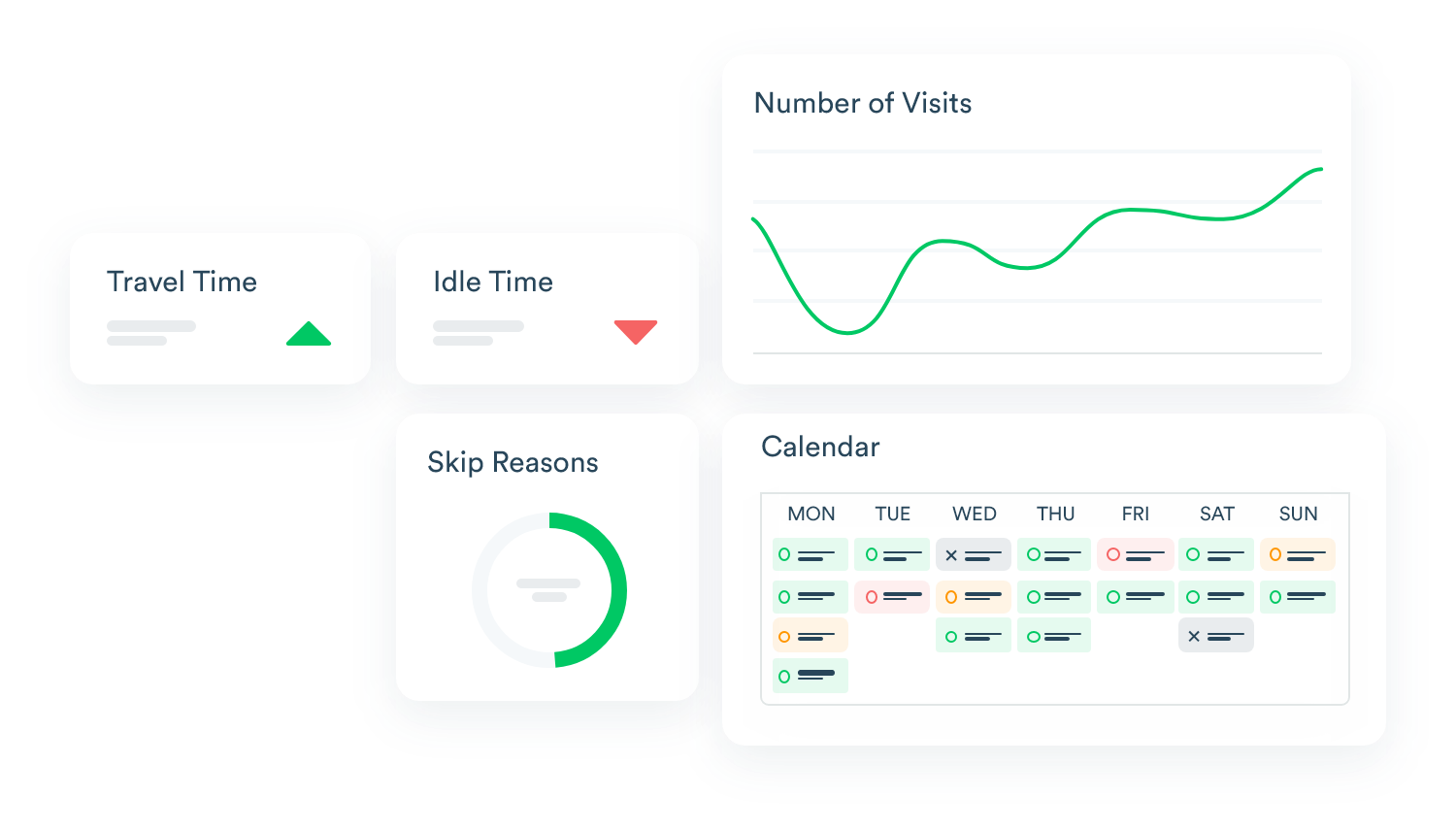At Shelvz, we’re aware that field sales teams are the driving force behind companies’ success. What they do is beyond “just selling”, in the digitalized and connected landscape, these frontliners are still the face of the brands they represent, they are the personal touch that builds relationships and the access point to data and invaluable customer insights.
Given their pivotal role, empowering these teams through effective training strategies and equipping them with the right tools is paramount for businesses aiming to thrive in the competitive landscape of retail and beyond.
In this article we will discuss some of the best innovative training strategies alongside best tools and practices that can supercharge a field force and transform it into a powerhouse of performance and optimization.
Understanding the Field Sales Landscape and its Challenges
Field sales teams operate in a highly demanding environment. Besides being constantly on the go and having to coordinate their time with their movements they are faced with many challenges to navigate.
The most commonly faced challenges by your field sales team are:
- Geographical Constraints: Covering vast territories can be time-consuming and both physically and mentally exhausting specially with tight deadlines and the occasional emergencies.
- Dynamic Environments: Adapting to different customer needs and market conditions on the fly is very demanding and requires a lot of energy, experience and wisdom to take the right decision and act accordingly.
- High Expectations: Keeping up with customer expectations while facing a harsh competition makes meeting sales targets while maintaining customer satisfaction a very high standard.
These challenges, tough as they seem, also present opportunities for growth and innovation. Sales professionals who can navigate these complexities effectively are invaluable assets to any organization, however this is not always obvious nor easy and your team can definitely benefit from a little push. Successful training programs can prepare your personnel to address the previously mentioned challenges head-on. With the right tools, skills and mindset, field representatives can adapt, solve and excel.
This requires going beyond traditional sales training to incorporate elements of retail execution, retail analytics, and strategic sales route planning.
Understanding the Crucial Role of Training
Training is not just about providing knowledge; it’s about empowering your sales team to make intelligent decisions, adapt to varying customer needs, and leverage technological tools to enhance their performance. Effective training programs can dramatically improve the productivity of your sales team, leading to increased sales, better customer service, and a stronger brand presence in the market. Here’s a case study about a team that transformed its results through the power of training and adapting to the right technology (Using Shelvz of course).
The Cost and Risks of Not Training Your Staff
Neglecting the training of field sales teams can lead to a host of issues, detrimental not only to sales performance but also to the broader business. Untrained staff are likely to have lower sales conversions, poor customer service skills, and a limited understanding of products and the market. This can result in lost sales opportunities, decreased customer satisfaction, and ultimately, a tarnished brand reputation.
Furthermore, the absence of proper training in the use of workforce and field force management tools can lead to inefficiencies in sales operations, mismanagement of sales routes, and a lack of critical market insights. These inefficiencies not only increase operational costs but also cripple a business’s ability to compete effectively in the market.
The Role of Effective Training in Boosting Sales Performance
Effective training is the cornerstone of a successful field sales team. It ensures that team members are well-versed in product knowledge, sales techniques, and customer engagement strategies. Training should be:
- Comprehensive: Covering all aspects of the sales process.
- Ongoing: Continuous development to keep up with market changes.
- Engaging: Interactive sessions that encourage participation and retention.
Key Training Strategies for Field Sales Success
Incorporating Technology in Training
Technology has revolutionized field sales operations. From CRM systems to mobile apps, the tools available today can help sales teams plan more efficiently, communicate better, and gather real-time data for informed decision-making. Embracing these technological advancements is essential for any organization looking to empower its field sales teams.
The technological part of training is not only about teaching people to use new software and devices, incorporating digital tools into your training program is also a way to make the process faster, easier and more efficient.
For the team who’s always on the go, e-learning platforms can deliver flexible, on-demand training modules that sales representatives can access from anywhere. These platforms can be used to train on various aspects, including product knowledge, retail analytics interpretation, and effective field force management. Gamification can also enhance engagement, making learning both fun and effective.
Focusing on Retail Execution Skills
Developing retail execution skills for field sales teams is an obvious necessity. Training programs should cover how to target key components of retail execution such as optimizing shelf presence, negotiating prime placements, and conducting winning product demonstrations.
Familiarizing the team with the required standards can be done through tools that facilitate their tasks. By giving them references to planograms, or Image recognition, they can gain time and save effort to focus on other parts of their routine.
Simulations and role-playing exercises can also be effective in developing these skills, providing team members with a safe space to practice and refine their approaches while mastering the use of their tools.
Leveraging Retail Analytics
Understanding and interpreting retail analytics is crucial for field sales teams to make informed decisions that drive productivity and sales.
Training should cover how to gather data on sales performance, customer preferences, and competitor activities, as well as how to use this information to inform sales strategies and retail execution tactics.
The training is of course not meant for a manual execution of these tasks but rather of how to use tools and software to do so.
Strategic Sales Route Planning
Efficient sales route planning can significantly enhance productivity by minimizing travel time and maximizing face-time with clients.
Incorporate training on how to use field force management software to map out optimal routes, track sales visits, and analyze route efficiency over time.
Soft Skills Development
While hard skills are essential, the importance of soft skills—such as communication, negotiation, and relationship building—cannot be understated. These skills are often what differentiate the best salespeople from the rest. Include modules on emotional intelligence, conflict resolution, and effective communication to round out your training program.
Continuous Learning and Support
Empowering field sales teams is an ongoing process, not a one-time event. Continually update your training program to reflect new market trends, product launches, and feedback from the field. Encourage a culture of continuous learning and provide regular opportunities for team members to sharpen their skills and share best practices with each other.
Training Tip: Conduct regular training sessions on leveraging your tools. Ensure your field sales team is up to date on any new releases and features to keep on improving their performance. Their experience can also be a valuable asset I asking for new features and functionalities to facilitate their tasks.
Conclusion
In the competitive arena of sales, a well-trained field sales team is your strongest asset. By implementing modern training strategies focused on technology integration, retail execution, retail analytics, strategic sales route planning, and soft skills development, you can empower your team to achieve greater productivity and performance. Remember, the investment you make in your people today will pay dividends in the form of stronger customer relationships, enhanced brand reputation, and ultimately, increased sales.
For team leaders and managers looking to elevate their field sales teams, these strategies offer a roadmap to success. Harnessing the power of workforce management and field force management tools, combined with a commitment to continuous training and development, will ensure your team is equipped to meet the challenges of the modern sales landscape head-on.
Get your team selling and book your demo today.



